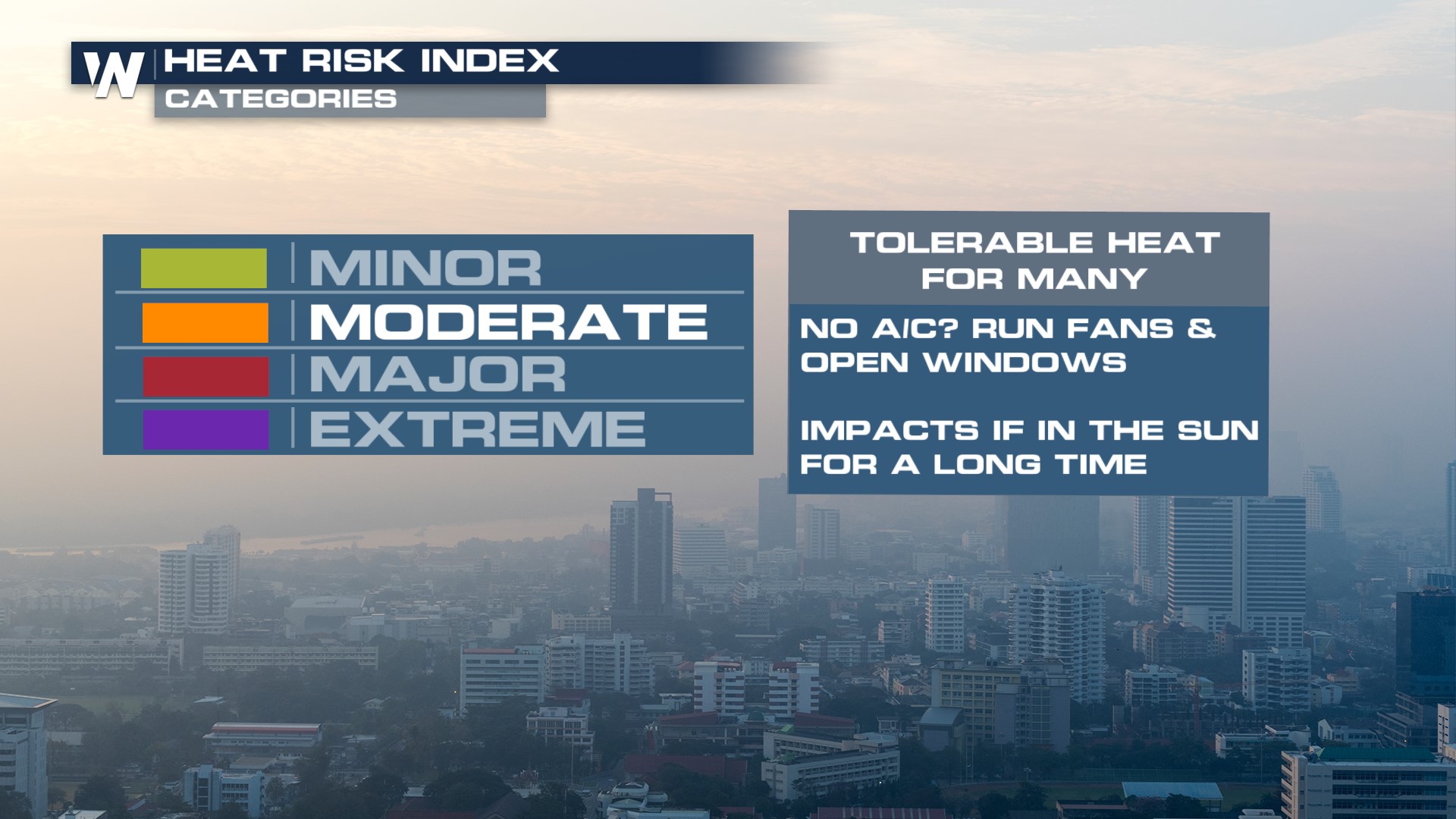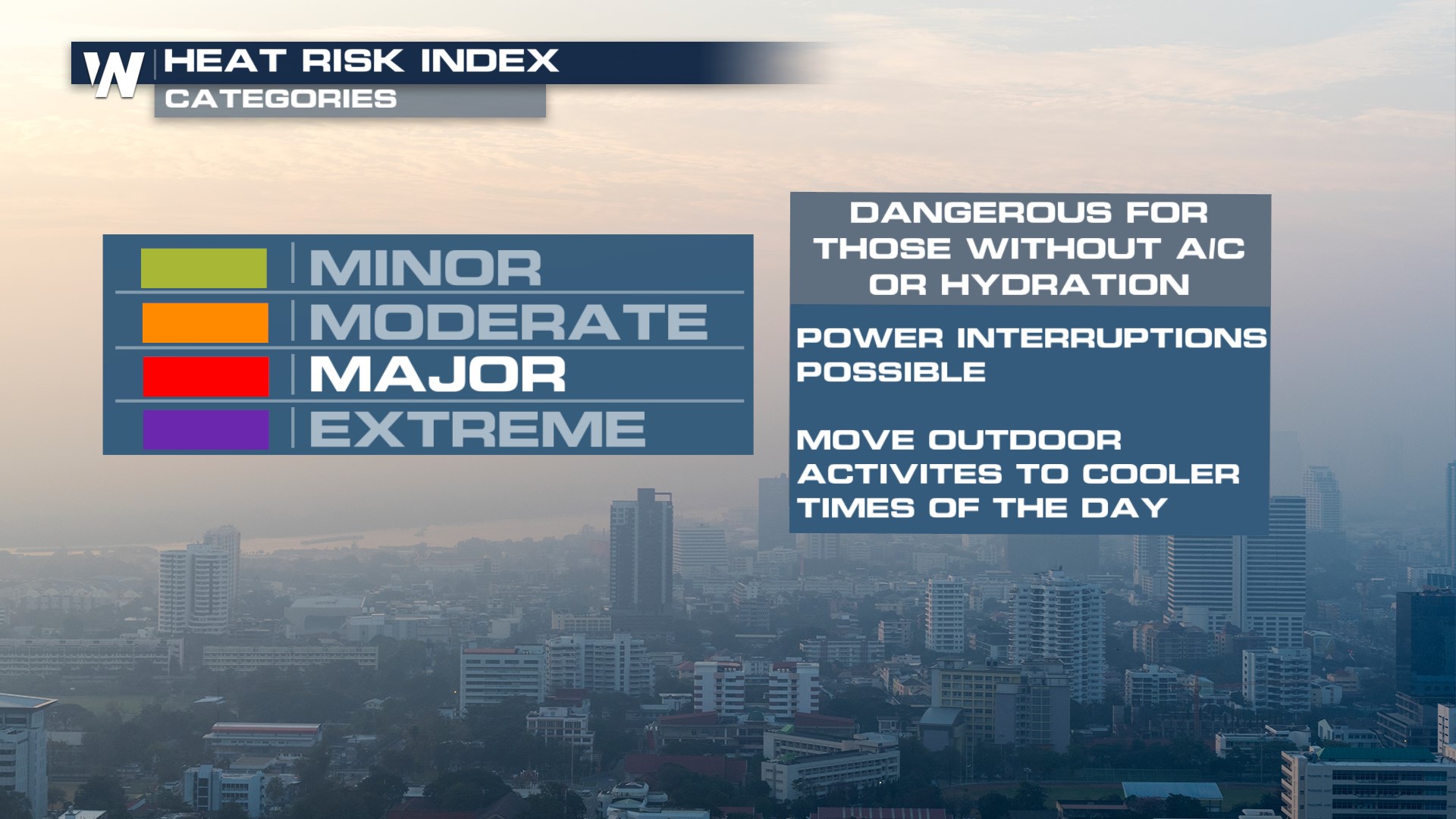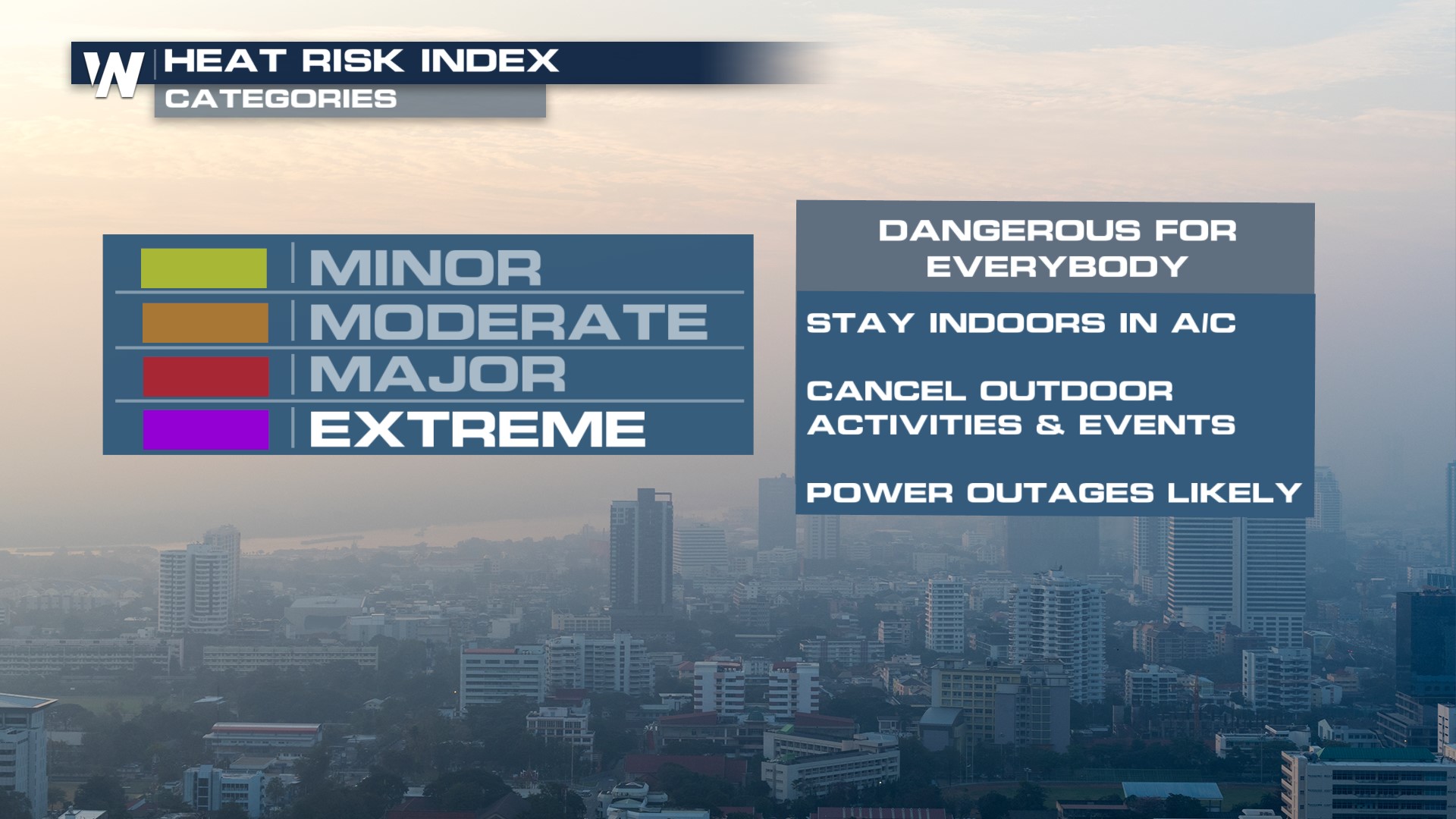NOAA Debuts "HeatRisk" Tool Nationwide
More people die from heat every year than ALL other extreme weather COMBINED. So how do you know how hot it is it really going to be? The National Oceanic and Atmospheric Administration [NOAA] and the Centers for Disease Prevention and Control [CDC] worked collaboratively to produce a new HeatRisk tool rolling out this summer from coast to coast. The tool had previously been used on the West Coast, but the 2024 summer will bring this experimental product to all cities across the U.S.
According to Kimberly McMahon, the NWS Public Weather Services Program Manager, "HeatRisk is a great tool to just put into context, how hot it's going to be compared to what they're used to."
The HeatRisk scale ranges from minor to extreme impacts and is color-coded from yellow to magenta. For reference, a MINOR impact day is your typical summer day. MODERATE days bring impact to vulnerable populations, especially people who are in the sun for long periods or without A/C. On these days, fans and open windows help to alleviate heat impacts inside.
 MAJOR impact days can be deadly for those without A/C and power interruptions are possible due to the heat stress. Hospitals are likely to see an increase in the number of ER visits due to heat-related illnesses. Outdoor activities should be shifted to cooler times of the day.
MAJOR impact days can be deadly for those without A/C and power interruptions are possible due to the heat stress. Hospitals are likely to see an increase in the number of ER visits due to heat-related illnesses. Outdoor activities should be shifted to cooler times of the day.
 Finally, EXTREME impact days are for long-duration or potentially record-breaking heat events. There will be little to no relief from the heat overnight... and power outages are likely due to the stress on the grid. Outdoor activities should be canceled, and you should stay in cool spaces. In 2023 during Phoenix's month-long stretch of 100°+ degree days, more people died in their un-air conditions homes than outdoors.
Finally, EXTREME impact days are for long-duration or potentially record-breaking heat events. There will be little to no relief from the heat overnight... and power outages are likely due to the stress on the grid. Outdoor activities should be canceled, and you should stay in cool spaces. In 2023 during Phoenix's month-long stretch of 100°+ degree days, more people died in their un-air conditions homes than outdoors.
 The HeatRisk tool incorporated heat forecast and historical data from NOAA to include: how above normal the temperatures are, the time of year, the duration of the heat, and overnight relief potential. It also considers at what temperature heat deaths occur for over 700 cities in the U.S.. That data was imperative in designing the tool to know at what level heat becomes deadly, unique to geographic location. For example, Phoenix's 110°, though hot, wouldn't be an "extreme" day during the summer. Take that same 110° but for Chicago? The risk becomes extreme. Look for the new HeatRisk product and temperature forecasts this summer on WeatherNationTV. For more information from NOAA, visit the HeatRisk Dashboard.
The HeatRisk tool incorporated heat forecast and historical data from NOAA to include: how above normal the temperatures are, the time of year, the duration of the heat, and overnight relief potential. It also considers at what temperature heat deaths occur for over 700 cities in the U.S.. That data was imperative in designing the tool to know at what level heat becomes deadly, unique to geographic location. For example, Phoenix's 110°, though hot, wouldn't be an "extreme" day during the summer. Take that same 110° but for Chicago? The risk becomes extreme. Look for the new HeatRisk product and temperature forecasts this summer on WeatherNationTV. For more information from NOAA, visit the HeatRisk Dashboard.